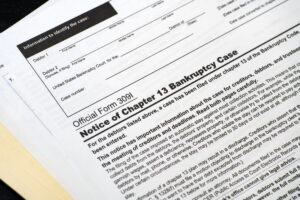I was in a consultation the other day with a potential client. He had been unemployed for several months, so I asked him how he had been making ends meet. He told me that he had gotten a loan from a family member, but that he didn’t want to include it in the bankruptcy.
I took a deep breath and prepared for what I knew was coming next. I told him that the Bankruptcy Code requires debtors to list all of their assets and the debts in their petition and that he couldn’t simply leave this loan off. “How will they know,” he asked. I explained that bankruptcy trustees are very experienced at looking at petitions. Petitions are pictures of a person’s financial life. The pictures have to make sense. “If I have a question about how you’ve been able to support yourself for the last few months, then so will the trustee,” I said. The trustee is going to want to know how he paid his bills if he’s been unemployed.
I also told him that if he wanted the kind of lawyer that was willing to submit a false petition, then I probably wasn’t the lawyer for him. I have yet to meet the client I am willing to sacrifice my livelihood for.
The bottom line is that you must follow the Golden Rule of Bankruptcy: Disclose, Disclose, Disclose. The Code requires it. I abide by it. In exchange, you’ll get a fresh financial start and not have to worry about the trustee’s scrutiny. We’ll beat him to the punch by showing that we have nothing to hide.
If you fail to disclose everything, you risk having your case dismissed. That means that if you filed bankruptcy to stop creditors from harassing you or garnishing your wages, they’ll get another chance to do just that. You also risk being charged criminally for lying to the court and risk fines and jail time. All for something that we could address by following the Golden Rule.
I met with this potential client a couple of weeks ago. I haven’t heard from him since. I hope he’s still thinking about whether or not to file and hasn’t gone to another lawyer who he’ll keep information from.


